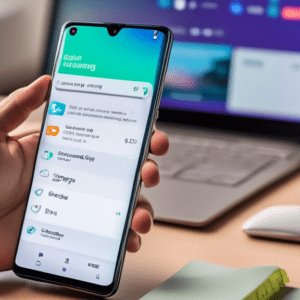A Controversial Move that Prioritizes Security Over User Freedom?
Samsung, the world’s largest smartphone manufacturer, is poised to make a significant change to its upcoming Galaxy devices that could have substantial implications for users and the Android ecosystem as a whole. Reports indicate that the tech giant will disable app sideloading by default on its future phone models. This move, while touted as a security enhancement, has ignited a fierce debate surrounding the balance between user freedom and digital safety.
Understanding App Sideloading and Its Implications
App sideloading, for the uninitiated, refers to the process of installing applications on your Android device from sources other than the official Google Play Store. This can be done through various methods, including downloading APK (Android Package Kit) files directly from the internet or using third-party app stores.
Sideloading has long been a double-edged sword in the Android world. On the one hand, it empowers users by granting them the freedom to explore a vast universe of apps beyond the curated confines of Google Play. This open approach has been instrumental in fostering innovation and offering users greater control over their devices.
However, this freedom comes at a price – security. Sideloading apps from untrusted sources can expose users to a myriad of risks, including malware, spyware, and data breaches. Malicious actors often exploit sideloading to distribute harmful apps disguised as legitimate software, potentially compromising sensitive user information and device integrity.
Samsung’s Rationale: Prioritizing Security in an Increasingly Hostile Digital Landscape
Samsung’s decision to disable app sideloading by default appears to be primarily driven by security concerns. The company has likely observed a surge in mobile threats targeting Android users and aims to mitigate the risks associated with sideloading by making it a non-default option.
This move aligns with a broader industry trend toward enhanced security measures. As smartphones have become indispensable tools for communication, financial transactions, and personal data storage, ensuring their security has become paramount. By making it more difficult for users to inadvertently install potentially harmful apps, Samsung aims to bolster the overall security posture of its devices.
Furthermore, Samsung’s decision could be influenced by regulatory pressures and legal liabilities. As governments worldwide grapple with the challenges of cybersecurity and data privacy, tech companies face increasing scrutiny and potential consequences for security lapses. By disabling sideloading by default, Samsung might be aiming to preempt potential legal issues and demonstrate its commitment to user safety.
The Controversy: Striking a Balance Between Security and User Freedom
Samsung’s move has sparked a heated debate within the tech community, with proponents and critics alike voicing their perspectives. Those in favor of disabling sideloading argue that it is a necessary step to protect users from the ever-evolving landscape of mobile threats. They contend that the average user may not possess the technical expertise to discern safe apps from malicious ones, making them vulnerable to exploitation.
Conversely, critics argue that disabling sideloading by default constitutes an overreach and undermines the fundamental principles of Android’s open ecosystem. They assert that users should have the freedom to choose where they download apps from and that informed users should not be penalized for the sake of those who might unknowingly expose themselves to risks.
Moreover, critics highlight that disabling sideloading could stifle innovation by making it more challenging for developers to distribute their apps outside the Google Play Store. This could create a more restrictive app ecosystem, potentially limiting user choice and hindering the development of novel mobile experiences.
The Potential Implications for the Android Ecosystem
Samsung’s decision, given its market dominance, could have ripple effects throughout the Android landscape. Other manufacturers might follow suit, adopting similar security measures that restrict sideloading. This could lead to a more controlled and less open Android ecosystem, resembling Apple’s iOS in terms of app distribution.
Such a shift would have significant implications for developers, who might need to rely more heavily on the Google Play Store for app distribution. This could result in increased competition for visibility and potentially higher fees for developers, ultimately impacting the diversity and affordability of apps available to users.
Furthermore, a more restricted Android ecosystem could raise concerns about censorship and control. If app distribution becomes increasingly centralized, it could empower gatekeepers like Google to exert greater influence over the types of apps available to users, potentially limiting access to content deemed objectionable or controversial.
The Future of App Sideloading: A Delicate Balancing Act
The debate surrounding app sideloading highlights the complex challenges faced by tech companies in balancing user freedom with security concerns. As mobile threats continue to evolve and proliferate, ensuring the safety of users’ data and devices is paramount. However, restricting user choice and control over their devices can have unintended consequences, potentially stifling innovation and centralizing power within the tech industry.
Finding a sustainable solution requires a multifaceted approach that involves educating users about the risks of sideloading, promoting app development best practices, and fostering a collaborative environment where stakeholders can work together to create a more secure and open mobile ecosystem.
Ultimately, the future of app sideloading will likely involve a delicate balancing act. Striking the right balance between security and freedom will require ongoing dialogue, innovation, and a shared commitment to creating a mobile experience that is both safe and empowering for users.
